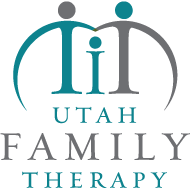Understanding Emotionally Focused Therapy (EFT) for Transformative Relationship Healing
Emotionally Focused Therapy (EFT) or EFT Therapy has emerged as a powerful approach to relationship counseling, offering hope and healing to couples facing challenges in their connections.
Unlike other types of therapy that may focus on individual issues or behavioral changes, EFT is unique in its emphasis on emotional bonding and attachment dynamics.
Developed in the 1980s by Dr. Sue Johnson and Dr. Les Greenberg, EFT has gained widespread recognition for its effectiveness in fostering secure and lasting bonds between partners.
This article delves into the principles, techniques, and benefits of EFT therapy, highlighting its transformative potential in restoring love, trust, and intimacy.
Table of Contents - Quick Links
The Core Principles of EFT Therapy
At the heart of EFT lies a deep understanding of human emotions and attachment dynamics.
EFT is rooted in attachment theory, which assumes that our early experiences with caregivers shape our patterns of emotional bonding and relational behavior throughout life.
According to EFT, individuals seek emotional connection and responsiveness from their partners as a fundamental human need.
Here are some key terms related to EFT therapy: Attachment theory-a psychological model that explains how early interactions with caregivers shape our patterns of emotional bonding and relational behavior.
Emotional connection-a deep, meaningful bond between individuals that is based on mutual understanding, empathy, and respect.
Responsiveness-the ability to understand and respond to another person’s needs, feelings, or concerns.
The fundamental principles of EFT include
1. Attachment and Emotional Needs: EFT acknowledges that beneath conflicts and distress in relationships are unmet emotional needs for closeness, security, and validation.
These needs drive behaviors and interactions within relationships.
2. Emotional Awareness and Regulation: EFT focuses on helping individuals and couples become more aware of their emotions, understand their underlying meanings, and learn healthy ways to regulate and express them.
3. Patterns and Cycles: EFT recognizes that couples often get stuck in negative interactional patterns or cycles, such as criticism, defensiveness, withdrawal, or escalation.
These cycles perpetuate conflict and distance.
4. Creating Secure Bonds: EFT aims to create secure attachment bonds between partners characterized by emotional accessibility, responsiveness, and engagement.
Secure bonds provide a safe haven for individuals to explore and express their deepest emotions.

The Stages of EFT Therapy
EFT follows a structured process designed to guide couples through transformative stages of healing and growth. These stages include:
1. Assessment and De-escalation: In the initial phase, the therapist thoroughly assesses the couple’s relationship dynamics, attachment styles, and underlying issues.
Emphasis is placed on de-escalating conflicts and creating a safe therapeutic environment.
2. Identifying Patterns: The therapist helps the couple identify their negative interactional patterns and emotional triggers.
Through compassionate exploration, hidden emotions and vulnerabilities are brought to light.
3. Restructuring Interactions: EFT focuses on restructuring the couple’s interactions by promoting open communication, empathy, and validation.
Partners learn to express their needs and emotions in a way that fosters connection rather than conflict.
4. Consolidation and Integration: The therapist facilitates consolidation and integration of new patterns and behaviors as the couple experiences positive changes and a more profound emotional connection.
This phase reinforces the couple’s ability to navigate challenges and maintain a secure bond.
Techniques and Interventions in EFT
EFT utilizes a range of techniques and interventions to facilitate emotional healing and relationship transformation:
1. Emotionally Focused Conversations: Therapists guide couples through structured conversations to express emotions, needs, and fears.
These conversations promote empathy, understanding, and validation.
2. Attachment Exploration: EFT encourages couples to explore their attachment histories and how past experiences impact their current relationship dynamics.
This exploration fosters insight and empathy toward each other’s perspectives.
3. Emotion Coaching: Therapists teach couples effective ways to recognize, regulate, and express emotions constructively.
Emotion coaching enhances emotional intelligence and promotes healthier communication.
4. Behavioral Experiments: EFT may involve behavioral experiments or exercises designed to test new ways of interacting and responding within the relationship.
These experiments provide opportunities for learning and growth.
5. Narrative Change: EFT helps couples reframe negative narratives and create new, positive stories about their relationship.
This narrative change promotes resilience and hope for the future.

Benefits of EFT Therapy
The benefits of EFT therapy are profound and far-reaching:
1. Improved Communication: EFT enhances communication skills, allowing couples to express their needs, feelings, and concerns openly and empathically.
2. Enhanced Emotional Connection: Couples experience a deeper emotional connection and intimacy as they learn to understand and respond to each other’s emotions.
3. Conflict Resolution: EFT equips couples with practical tools for resolving conflicts and disagreements respectfully and constructively.
4. Healing from Past Wounds: EFT helps couples heal from past hurts and traumas, fostering forgiveness, acceptance, and healing.
5. Long-Term Relationship Satisfaction: Research has shown that couples who undergo EFT therapy report higher levels of relationship satisfaction, commitment, and intimacy and gain the tools and understanding to maintain these positive changes in the long run.
Conclusion
Emotionally Focused Therapy (EFT) offers hope for couples seeking to rebuild and strengthen their relationships.
By addressing core emotional needs, restructuring negative patterns, and fostering secure attachment bonds, EFT paves the way for transformative healing and lasting love.
As couples embark on the journey of EFT therapy, they discover the power of empathy, vulnerability, and emotional connection in creating thriving and resilient partnerships.
If you’re interested in pursuing EFT therapy, it’s important to find a qualified therapist who is trained in the approach.
Action Steps
Here are some action steps related to Emotionally Focused Therapy (EFT) that individuals or couples can consider:
1. Self-Assessment: Take time to reflect on your own emotional needs, attachment style, and patterns of interaction within your relationships.
Consider how past experiences may be influencing your current dynamics.
2. Research EFT Therapists: Look for therapists specializing in Emotionally Focused Therapy (EFT) and have experience working with couples.
Check their credentials, reviews, and approach to ensure a good fit.
3. Schedule an Initial Consultation: Reach out to a qualified EFT therapist and schedule an initial consultation or assessment session.
Use this time to discuss your goals, concerns, and expectations for therapy.
4. Attend EFT Sessions: Commit to attending EFT therapy sessions regularly and actively participate in the process.
Be open to exploring emotions, communicating authentically, and practicing new skills.
5. Practice Emotional Awareness: Develop awareness of your emotions and learn to express them effectively and empathically.
Practice active listening and validation in your interactions with your partner.
6. Engage in Homework Assignments: Many EFT therapists provide homework assignments or exercises to practice between sessions.
Dedicate time to engage in these activities and apply what you’ve learned in therapy to real-life situations.
7. Monitor Progress: Regularly assess your progress in therapy and reflect on positive changes, insights gained, and challenges faced.
Communicate openly with your therapist about your experiences and any adjustments needed.
8. Cultivate Empathy and Understanding: Foster a culture of empathy, understanding, and validation in your relationship.
Practice seeing situations from your partner’s perspective and respond with compassion and kindness.
9. Address Relationship Patterns: Identify and address negative interactional patterns or cycles contributing to conflict or distance in your relationship.
Work collaboratively with your partner to create healthier dynamics.
10. Celebrate Achievements: Acknowledge and celebrate milestones, breakthroughs, and improvements in your relationship journey.
Recognize you and your partner’s effort and commitment toward positive change.
We understand that it’s important to find the correct fit for your relationship. We know we can help you but here are some additional resources to make sure you get the right therapist for you.
